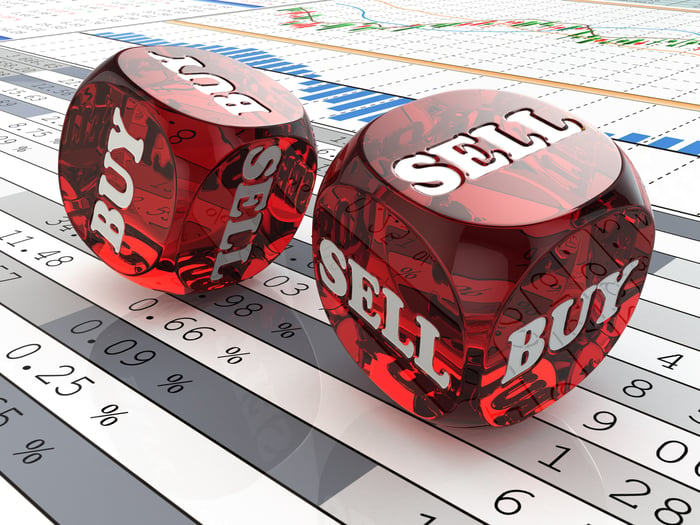2 Ultra-High-Yield Dividend Stocks Billionaires Can’t Stop Buying, and 1 They
Once every quarter, professional and everyday investors alike are given an opportunity to peer over the proverbial shoulders of Wall Street’s top money managers to see what they’ve been buying or selling. Wednesday, Feb. 14, marked Form 13F filing day for the fourth quarter with the Securities and Exchange Commission.
Although most investors are likely fixated on what Wall Street’s brightest minds are doing with artificial intelligence (AI) stocks, the under-the-radar moves made by billionaire investors can sometimes be even more telling.

Image source: Getty Images.
The latest round of 13Fs, which features trading activity for the December-ended quarter, detailed a handful of moves made by successful billionaire investors in ultra-high-yield dividend stocks. I’m talking about publicly traded companies whose yield is at least four times higher than the benchmark S&P 500.
Whereas two brand-name, ultra-high-yield companies were bought hand over fist by billionaires in the fourth quarter, one absolutely supercharged monthly dividend stock, with a yield north of 15%, was shown the door.
Ultra-high-yield dividend stock No. 1 billionaires can’t stop buying: AT&T (6.54% yield)
The first high-octane income stock that had billionaire investors eager to press the buy button during the fourth quarter is none other than telecom behemoth AT&T (T -0.70%). A total of four billionaire asset managers made hefty purchases for their respective funds, including (total shares purchased in parenthesis):
- Ken Griffin of Citadel Advisors (29,512,760 shares)
- Israel Englander of Millennium Management (19,054,972 shares)
- Steven Cohen of Point72 Asset Management (4,970,954 shares)
- Ray Dalio of Bridgewater Associates (1,143,449 shares)
The lure for these billionaires, aside from AT&T’s delectable 6.5% yield, is likely Wall Street’s overreaction to a few headwinds facing the company.
For example, AT&T was clobbered this past July after a report from The Wall Street Journal alleged that legacy telecom operators could face sizable environmental and health-related liabilities tied to their use of lead-sheathed cables. However, AT&T countered by noting that its testing hasn’t revealed a health hazard to people or the environment. Even if there’s some form of financial liability in the future for AT&T, it would almost certainly be decided in America’s notoriously slow court system. In short, it’s not something investors should concern themselves with for the time being.
AT&T was also weighed down by the Federal Reserve undertaking its most-aggressive rate-hiking cycle since the early 1980s. Most legacy telecom companies are carrying around a lot of debt, which means future refinancing and/or debt-driven deals will be costlier.
The thing is, AT&T’s balance sheet has markedly improved since divesting content arm WarnerMedia in April 2022. Over the past seven quarters, ended Dec. 31, 2023, AT&T’s net debt has declined from $169 billion to $128.9 billion. While there’s still work to do to improve the company’s financial flexibility, AT&T’s dividend is undeniably safe.
Lastly, AT&T’s network upgrades have allowed it to benefit from the ongoing 5G revolution. Increased data consumption is boosting wireless segment sales. Meanwhile, the company logged its sixth consecutive year of at least 1 million net broadband additions in 2023. Broadband customers are the perfect target for high-margin service bundling.
Ultra-high-yield dividend stock No. 2 billionaires can’t stop buying: Pfizer (6.08% yield)
A second ultra-high-yield dividend stock that billionaire investors were clamoring to buy during the December-ended quarter is pharmaceutical juggernaut Pfizer (PFE 0.40%). Three prominent billionaires significantly added to their fund’s existing stakes, including (total shares purchased in parenthesis):
- Jeff Yass of Susquehanna International (10,947,182 shares)
- Ken Griffin of Citadel Advisors (9,343,112 shares)
- Israel Englander of Millennium Management (5,282,369 shares)
Somewhat similar to AT&T, the lure for Yass, Griffin, and Englander may be a downside overreaction by Wall Street to Pfizer’s declining sales and profits following the worst of the COVID-19 pandemic.
There’s no question that Pfizer was a prime beneficiary of the pandemic, from an operating standpoint. In 2022, the company sold more than $56 billion, combined, of its vaccine (Comirnaty) and its oral treatment (Paxlovid). In 2024, these two therapies are expected to generate just $8 billion in combined sales. This inflating and deflating of Pfizer’s sales has had quite the negative impact on its share price.
But interestingly enough, Pfizer’s sales continued to grow in 2023 (up 7%), if you exclude the impact of its COVID-19 therapies — and they’re liable to expand again in 2024. Despite the proverbial low-hanging fruit from the pandemic being in the rearview mirror, exceptional pricing power and innovation are continuing to lead the way.
Furthermore, Wall Street may be…
Read More: 2 Ultra-High-Yield Dividend Stocks Billionaires Can’t Stop Buying, and 1 They

